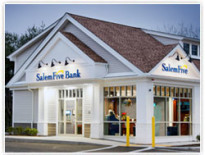The years of historically affordable mortgage rates look to be ending, as rates have steadily increased in recent months and show no signs of turning back, according to data released today by Zillow.
Mortgage rates have increased nearly 50 basis points since the beginning of the year. Historically low mortgage rates have been the silver lining in today’s competitive housing market, keeping monthly payments relatively affordable even as home prices reached new peaks in some areas of the country.
Mortgage payments on the typical U.S. home required 15.7 percent of the median household income at the end of 2017, according to Zillow’s Q4 2017 affordability analysis. Mortgage payments were 21 percent of the typical income in the late 1980s and 1990s.
In the Boston metropolitan area, monthly mortgage payments on the typical home required 23.5 percent of the median income at the end of 2017. If mortgage rates reach 5 percent next year, payments will take up 27.5 percent of income. If rates reach 6 percent, it will be 30.7 percent of the median income.
If mortgage rates reach 6 percent next year, near the upper end of forecasters’ expectations, the share of income needed to cover monthly housing costs on the median U.S. home will be 20.5 percent, nearly the historic norm of 21 percent. But in several large U.S. markets, including San Jose, California, Los Angeles and Miami, mortgage payments already require a larger share of income than they did historically. In San Jose, the share of income needed for mortgage payments increased from 36 percent historically to 46.1 percent at the end of 2017. Combined with record-high home prices, housing affordability is already suffering in these markets and will only worsen as rates climb.
An additional side effect of higher mortgage rates will be felt in housing inventory, as some homeowners with lower mortgage rates may hesitate to sell their homes and take out a new home loan with a higher rate. Most home shoppers can absorb modest increases in mortgage rates, but once rates begin to approach historic levels, they will eat into housing affordability for buyers and could limit the number of homes for sale. Inventory has fallen on an annual basis for 36 consecutive months, so any factors that further limit inventory will be a strain on the market.
“For nearly a decade now, homebuyers have been buoyed by historically low mortgage rates that made buying a home more affordable than it was for prior generations, but tomorrow’s buyers may not be so lucky,” Zillow Senior Economist Aaron Terrazas said in a statement. “Rates are showing a clear upward trend, bringing an end to an era of historically affordable mortgage payments. Bigger life considerations typically take precedence in the decision to move, but some homeowners who locked in a lower mortgage rate may look to alternatives like renovating their current home instead of becoming a buyer in a stressful, competitive market when higher rates would limit their buying power below what it was when they bought their current home.”
Renting doesn’t provide much relief as an alternative to home buying. The typical U.S. rental payment requires 28.9 percent of the median income. In 14 large U.S. metros, rent takes up more than 30 percent of the median income, widely considered the standard for unaffordable housing costs.




 |
| 
